Should You Upgrade To The New iPhone 12 - Which One Is Best?
The iPhone 12 with 5G was released in October 2020: Here we look at reasons why you might want to upgrade. We're also looking at reasons why you might want to steer clear. There are positive and negative factors in deciding on any new smartphone, starting with exactly that – deciding whether you need a NEW iPhone in the first place.
The NEW iPhone 12
If you watched the full Apple event presenting the iPhone 12, you're likely pretty excited about the device. The folks at Apple responsible for presenting products via press event, like we saw this week, are masters of their craft. From the first Steve Jobs product presentations all the way to the iPhone 12, Apple's honed their craft in this arena like no other company on earth.
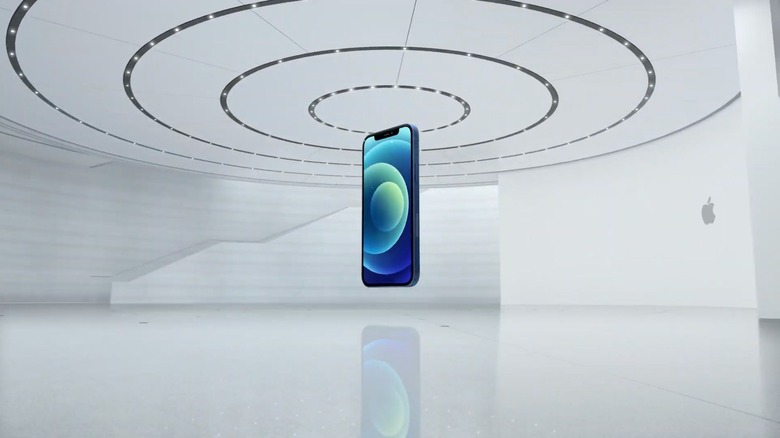
As such, you could have very easily skipped over the bit where you investigate the details. You could have just ripped open your pocketbook and hit the GO button in the Apple Store. But you didn't. You are an intrepid investigator, a savvy shopper, a potent planner.
The most exciting part of the presentation
Each time Apple's had a big event for their new iPhone lineup in the last few years, I've found the most interesting part to be the bit just after they announce the prices of the newest models. It is at that point that Apple shows the prices of their full near-future in-store lineup.
It's here that I tend to look for my next iPhone, would that I wanted to purchase a device at this time. It's here that we see what Apple will continue to offer for the next few months, at least.
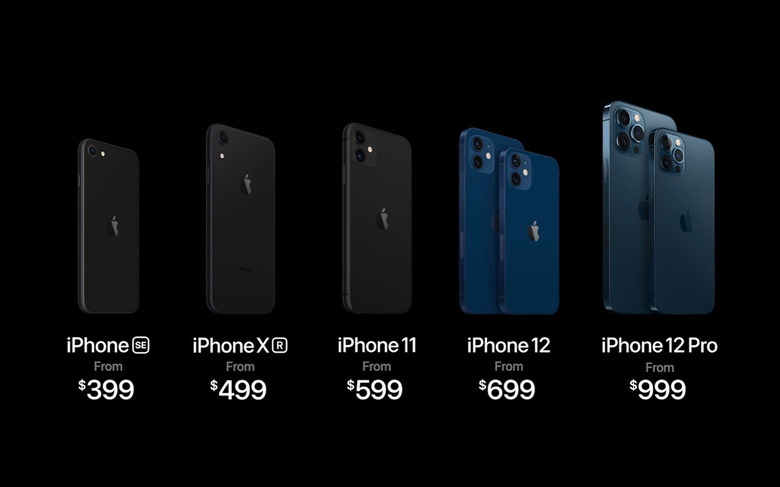
If I were to purchase a new (re: still packaged, not refurbished) iPhone today, I'd start by looking at the iPhone 11 Pro. There we see the most extravagant iPhone offered by Apple at this time last year, here, now, for a significantly lower price.*
There's nothing downgraded about the iPhone 11 lineup – it's just no longer the most powerful or HYPE iPhone to own. As it has been with most modern iPhone releases, you'll get a far better bit of value for your money if you're able to wait approximately 1 year after the announcement of any given iPhone.
Long-lasting value
Apple guarantees software support for at least three years after the release date of any given iPhone. More often than not, Apple has continued to send software updates to devices beyond even their initial guarantee. They do this because it's beneficial to both Apple and to the end consumer.
For products that depend upon software updates to remain useful and secure in our modern, connected world, the later you purchase a product, the less likely it is that it'll continue to see software support from its maker. Many smartphone makers only guarantee software and security updates for a few years beyond their initial release date, and abandon said devices after that.
Because Apple has been so good about sending software updates to their iPhone devices for years beyond their initial release, it's not a bad idea to consider purchase of an iPhone well beyond its initial release date.
The iPhone 12, mini, Pro, Max
The differences between the iPhone 12, iPhone 12 mini, iPhone 12 Pro, and iPhone 12 Max are few and far between. As we've discussed in iPhone 12 Pro Max is Apple's 2020 5G flagship, it's clear that Apple's most expensive iPhone 12 is the one on which they'll focus in commercials and claims about power and abilities superior to those of the rest of the smartphone universe.
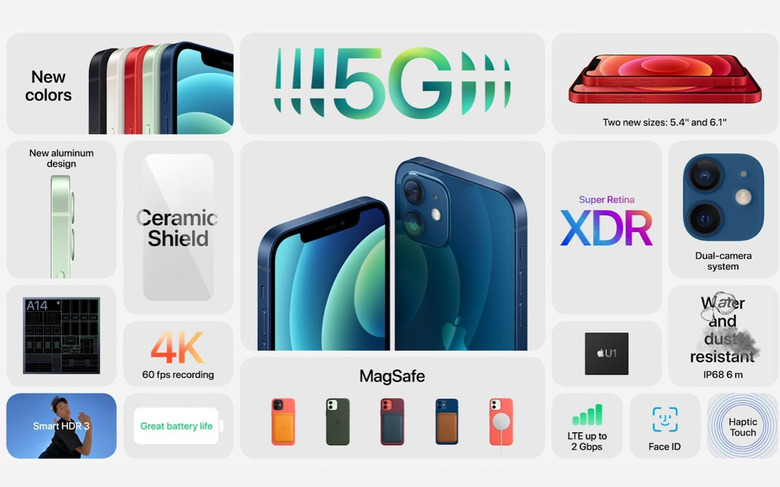
But all four iPhone 12 devices have the same access to 5G, the same front-facing camera, the same A14 Bionic chip, and the same phone thickness. The iPhone 12 Pro Max has an amount of zoom that's superior to the rest of the bunch, and a Sensor-shift OIS while the rest just have either dual-OIS (just the Pro) or plain old OIS.
The biggest difference between the lot is the LiDAR Scanner in the back-facing camera array of the iPhone 12 Pro and Pro Max. This unit allows Night Mode portraits, "Next-level AR experiences," and "faster autofocus in low light."
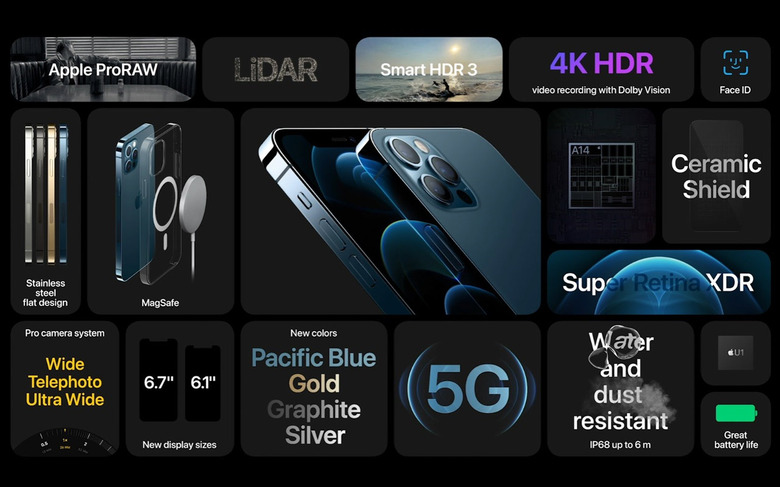
Otherwise you're really looking at just a few tiny factors that differentiate the various levels of iPhone today. Between the iPhone 12 models, you've got:
• Display Size
• Color options (non-Pro has one set, Pro has another)
• Price
• Camera abilities (as noted above)
• Battery size
Believe it or not, Apple suggests that with the iPhone 12 lineup, the larger the iPhone, the better the battery life. The differences are relatively small, but still – you might get a few more hours out of the larger device because of its larger battery capacity.
Do you need to upgrade?
Here's the kicker. If you really want to upgrade, and you want a "Pro" iPhone that you purchase directly from Apple, you only have two choices, both of them iPhone 12. Once the iPhone 12 was announced, Apple stopped carrying the iPhone 11 Pro and the iPhone 11 Pro Max. You can still buy them at authorized resellers, if you're lucky enough to find one. As such, if you want the most "Pro" features available in a smartphone sold by Apple, you can ONLY buy the iPhone 12 Pro or iPhone 12 Pro Max.
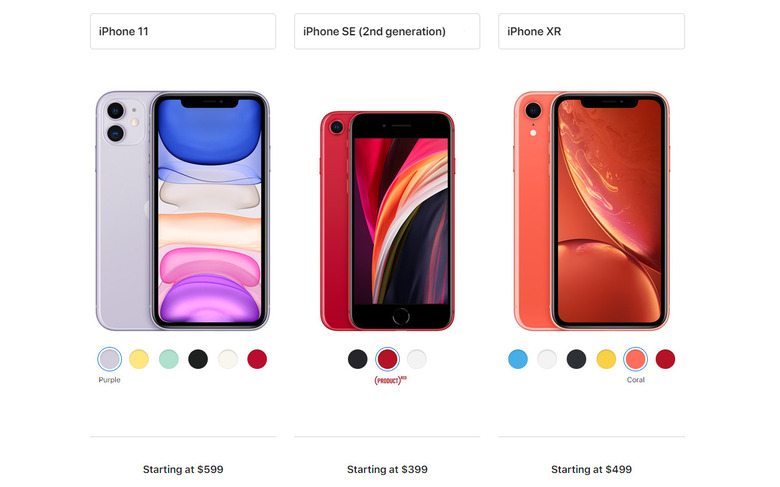
If you're uninterested in the LiDAR but DO want the most modern iPhone experience, including the latest industrial design (with flat edges, super sleek), I'd look to the iPhone 12 or iPhone 12 mini. But watch out for the fine print in the pricing.
If you do not care about the flat edges, the 5G, or the Magsafe charging, I see no reason why you shouldn't pay a significantly lower price for a smartphone like iPhone 11, iPhone SE (2nd generation), or iPhone XR, all of which remain available for purchase brand new in the package from Apple right this minute.
